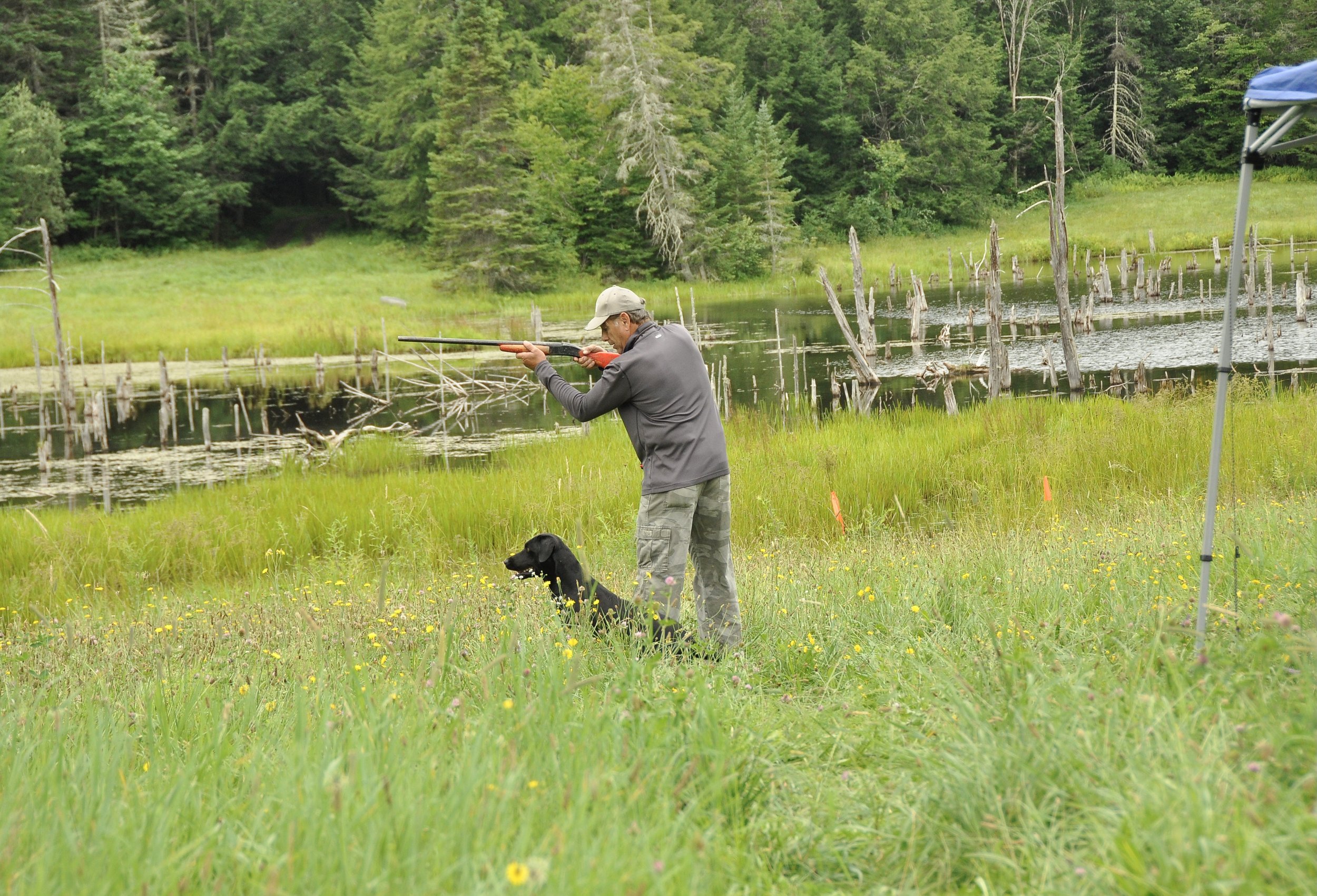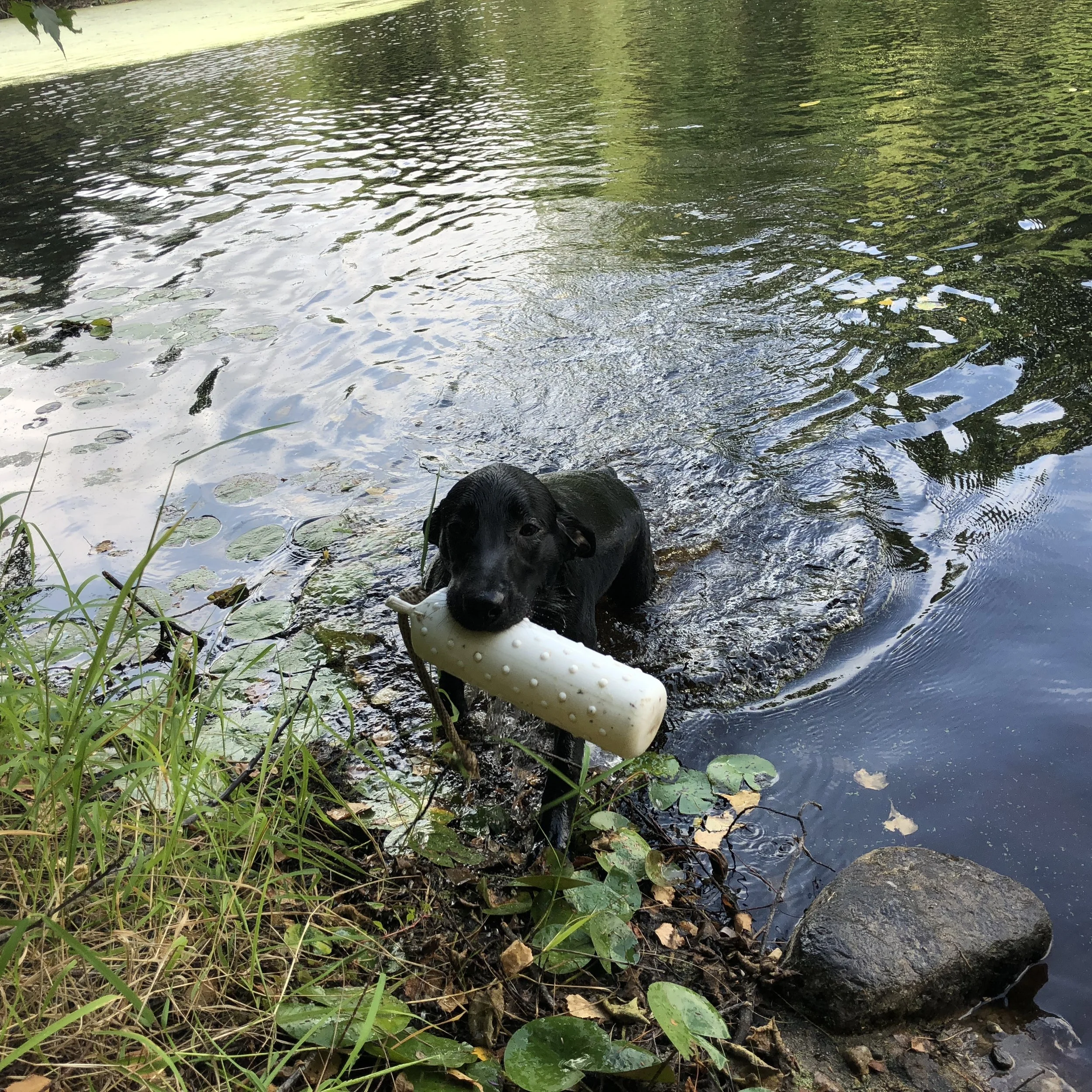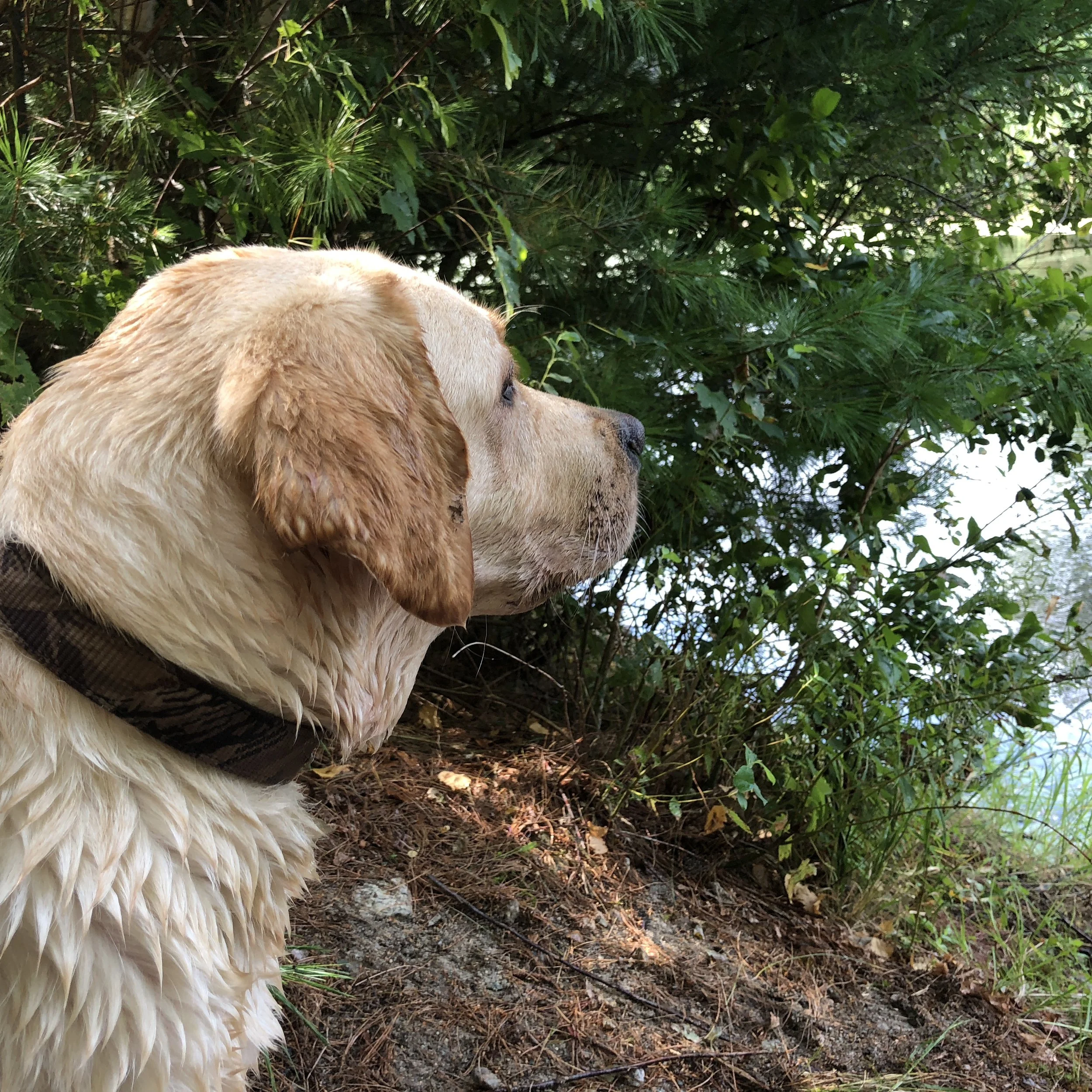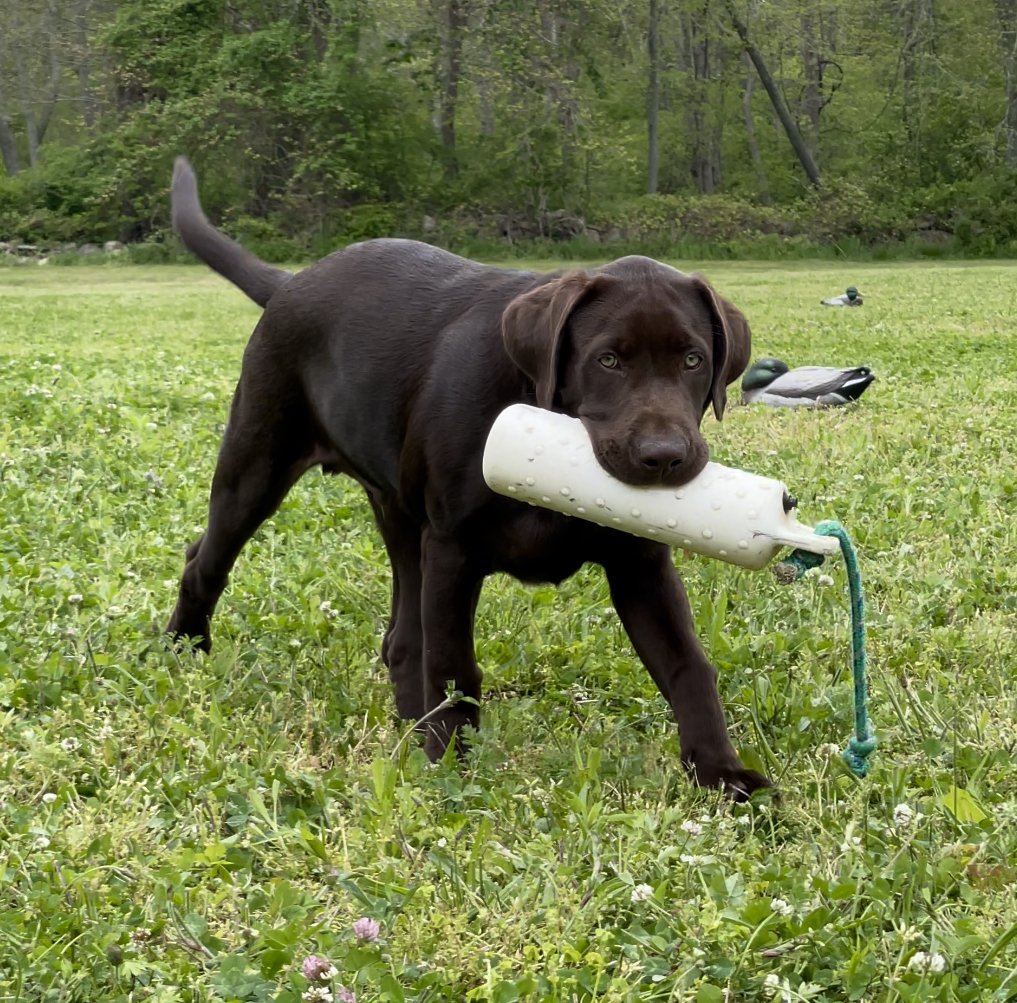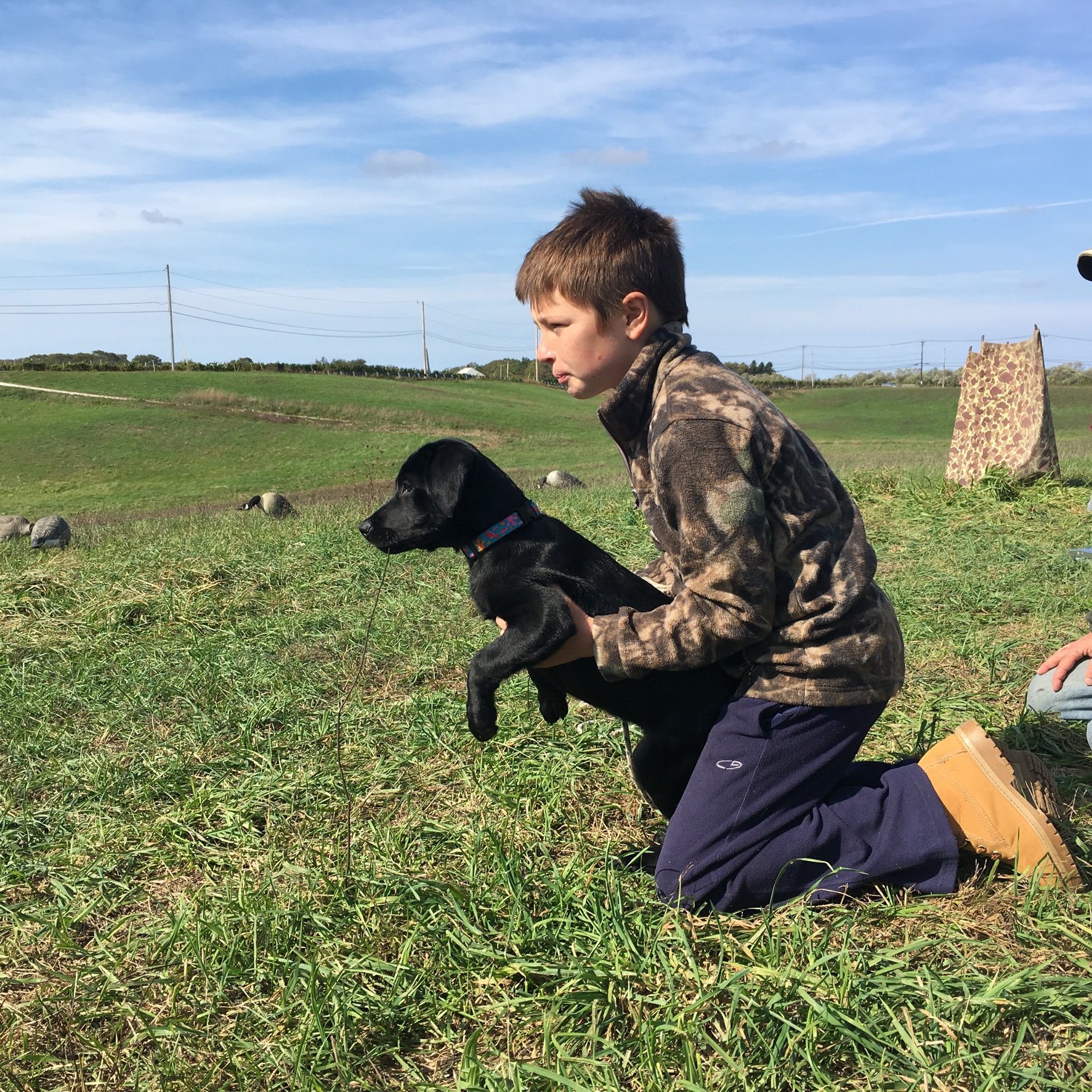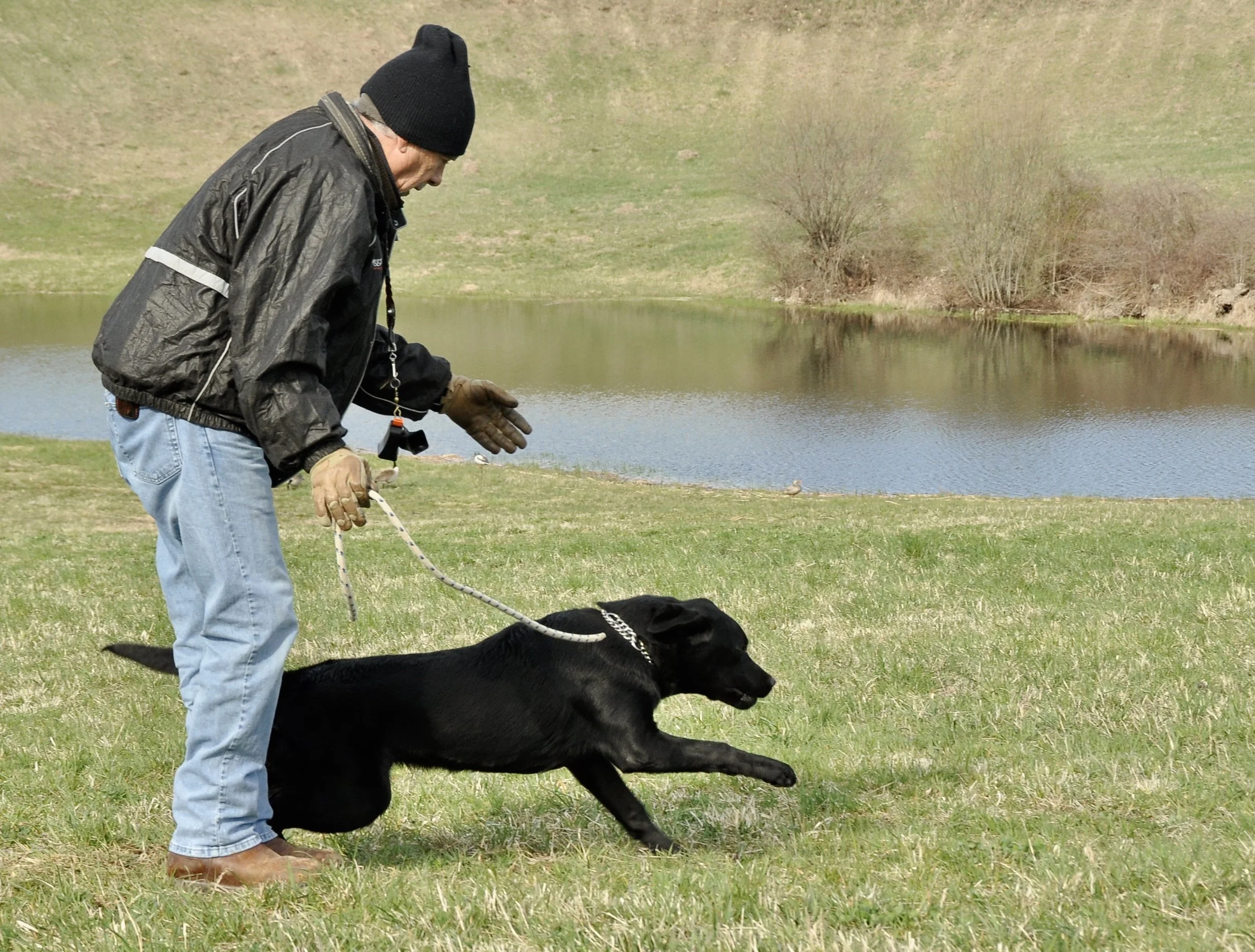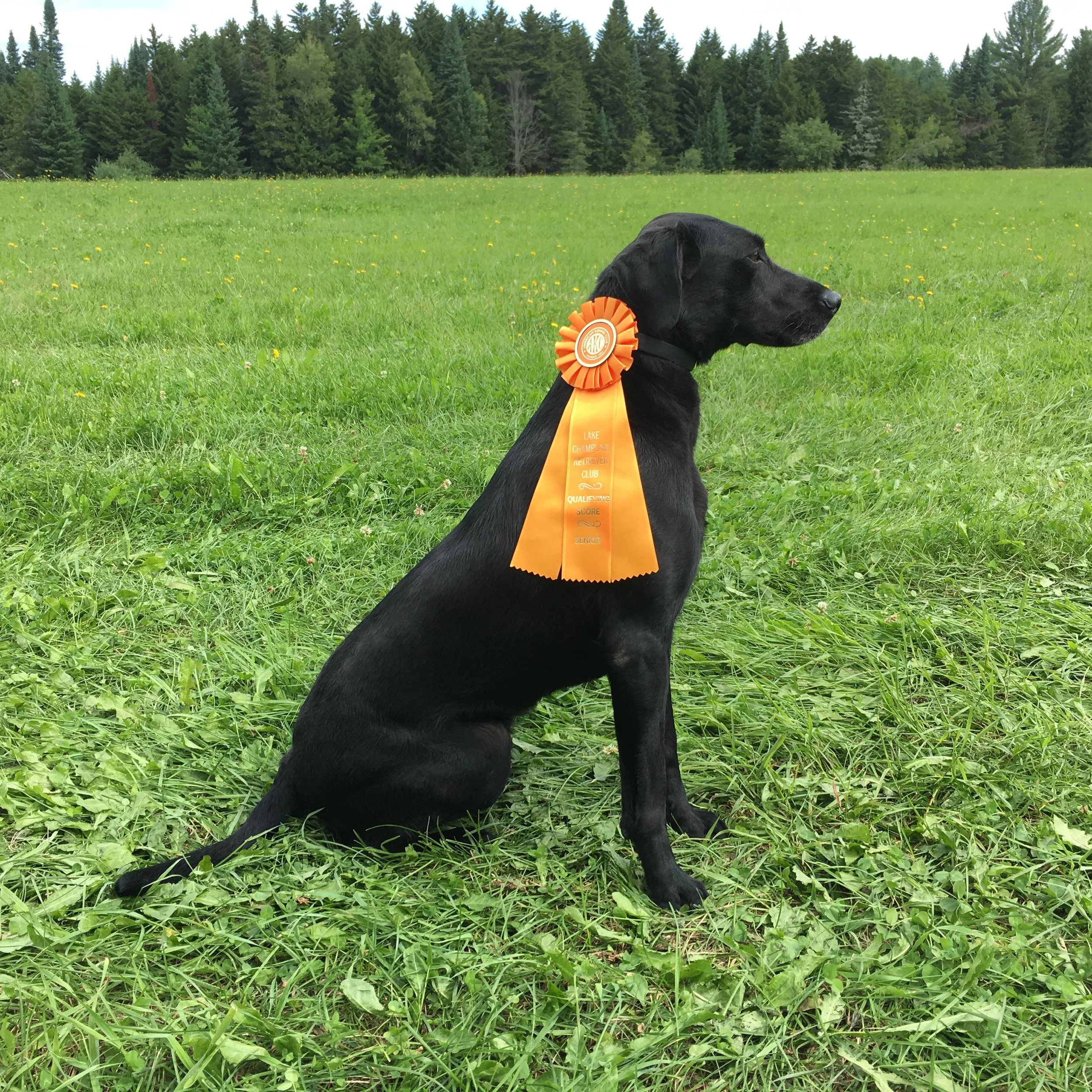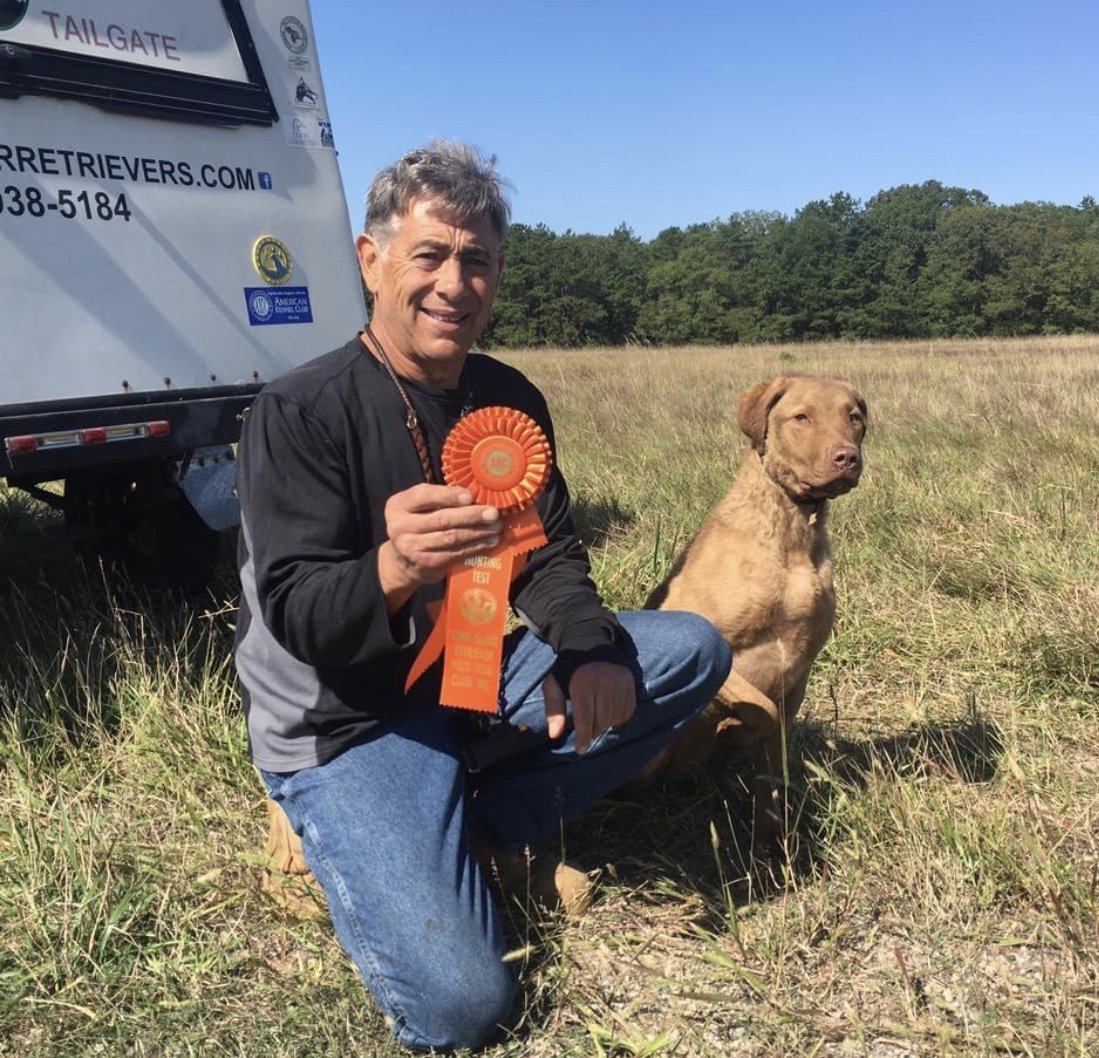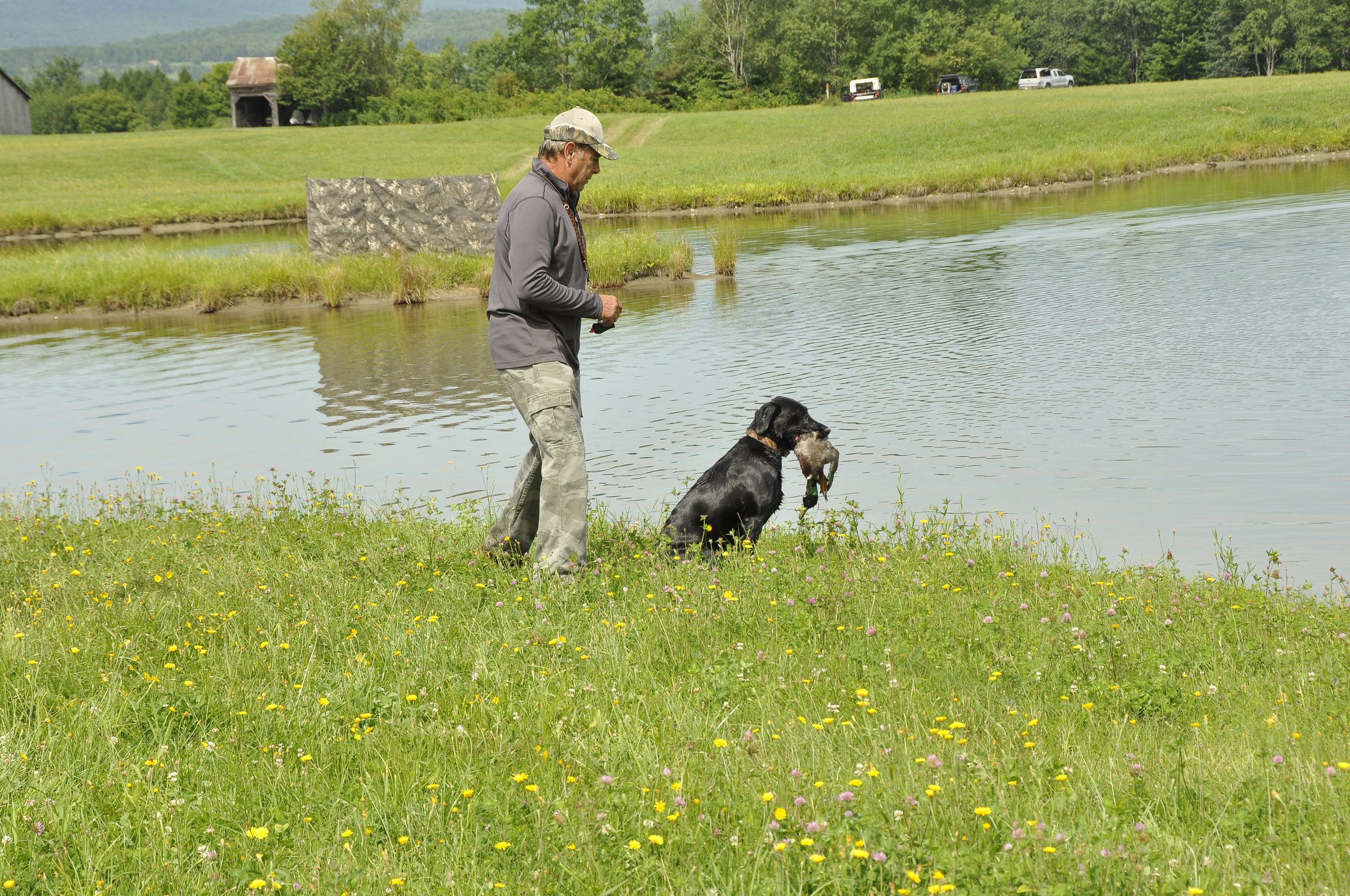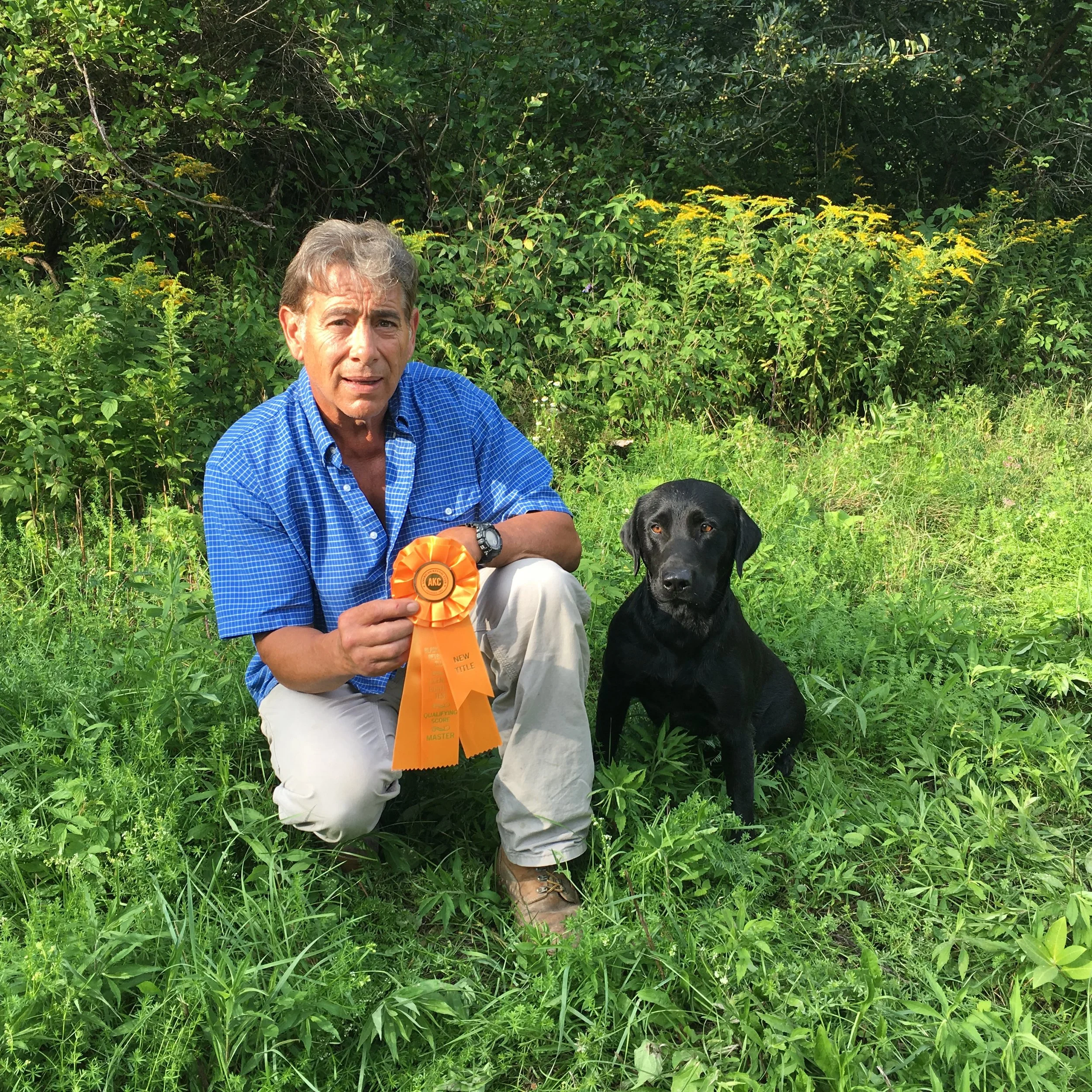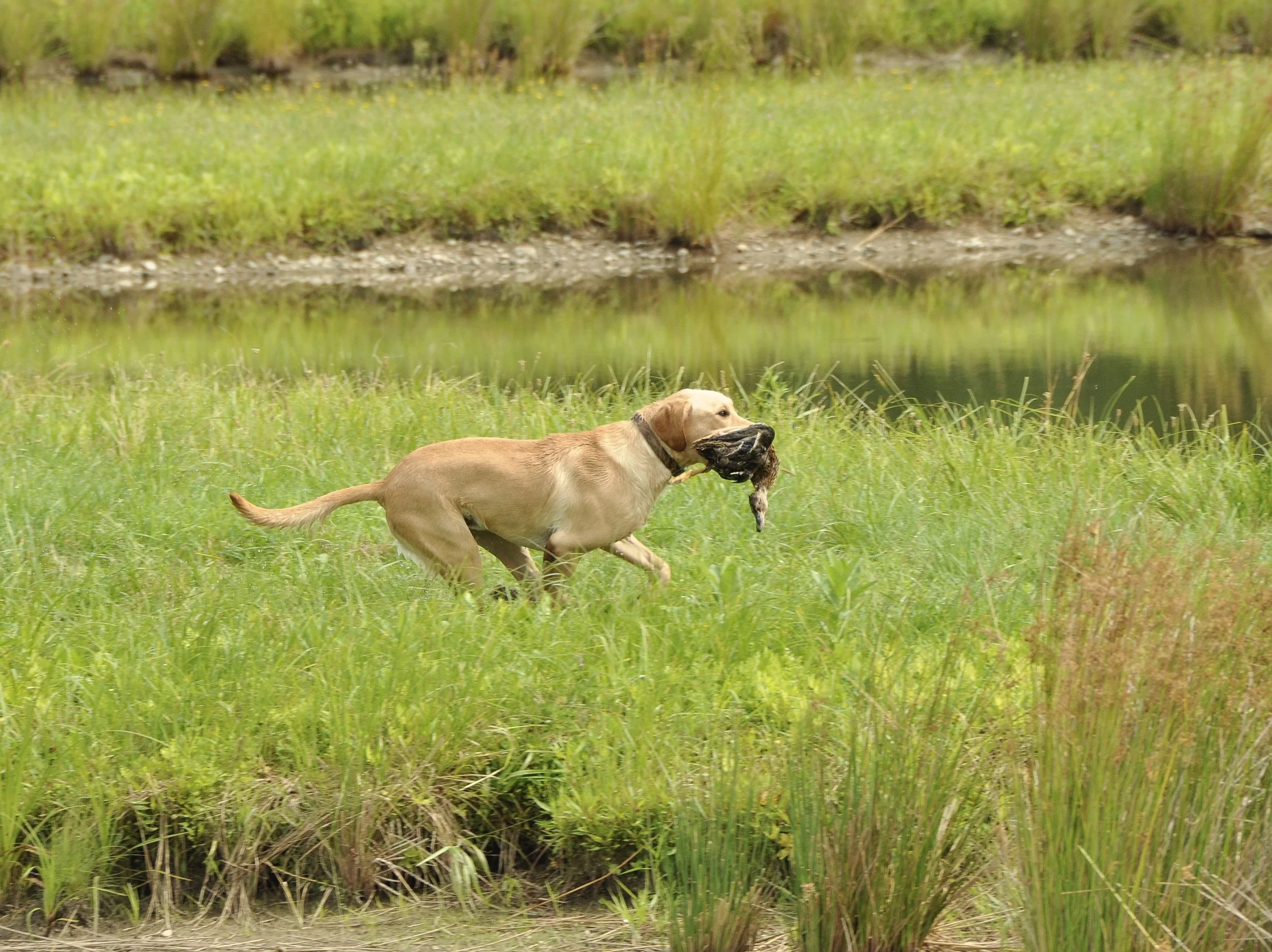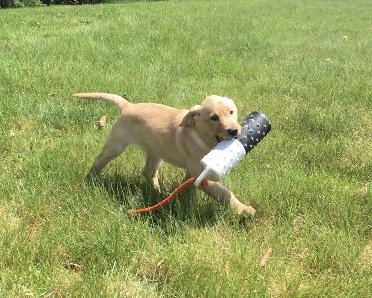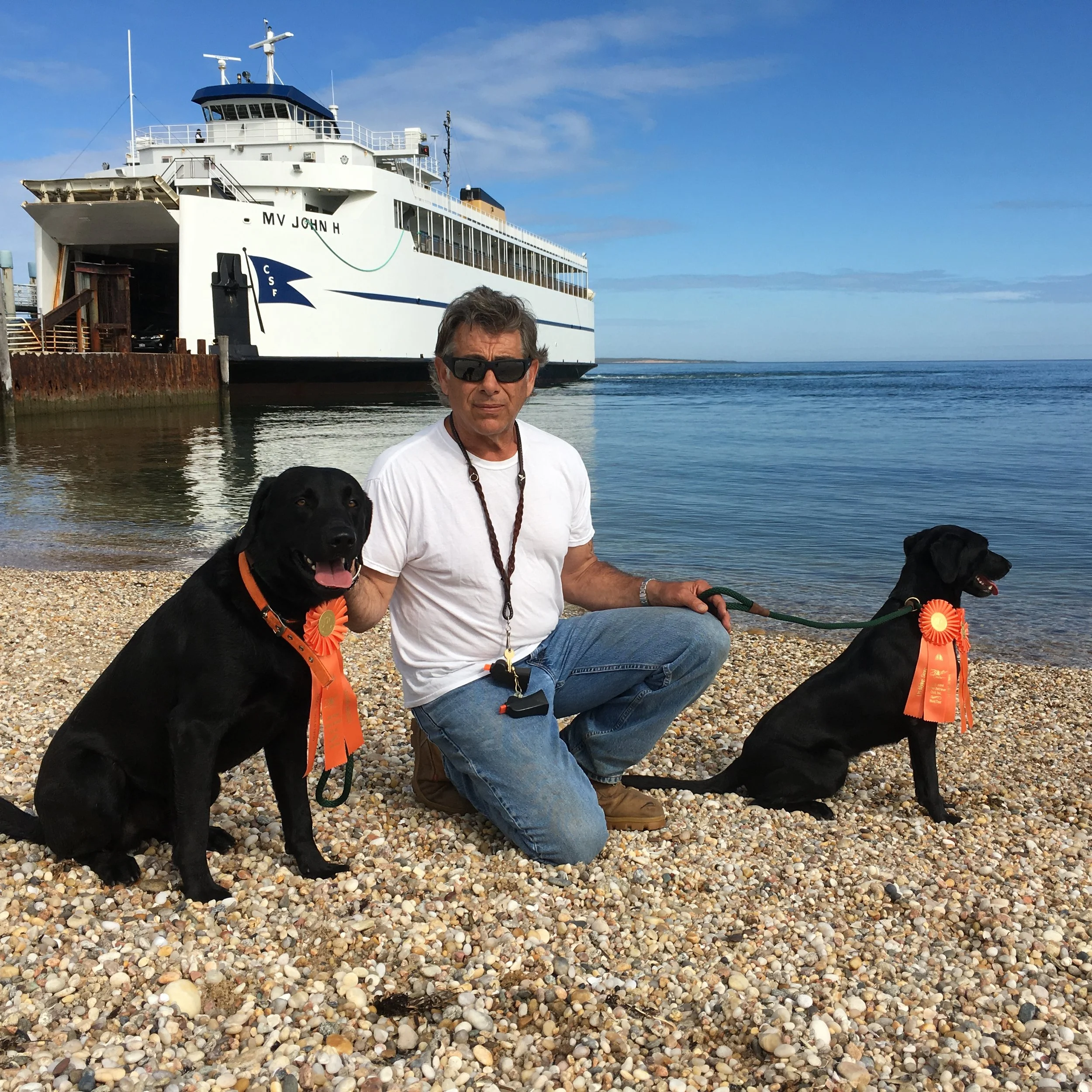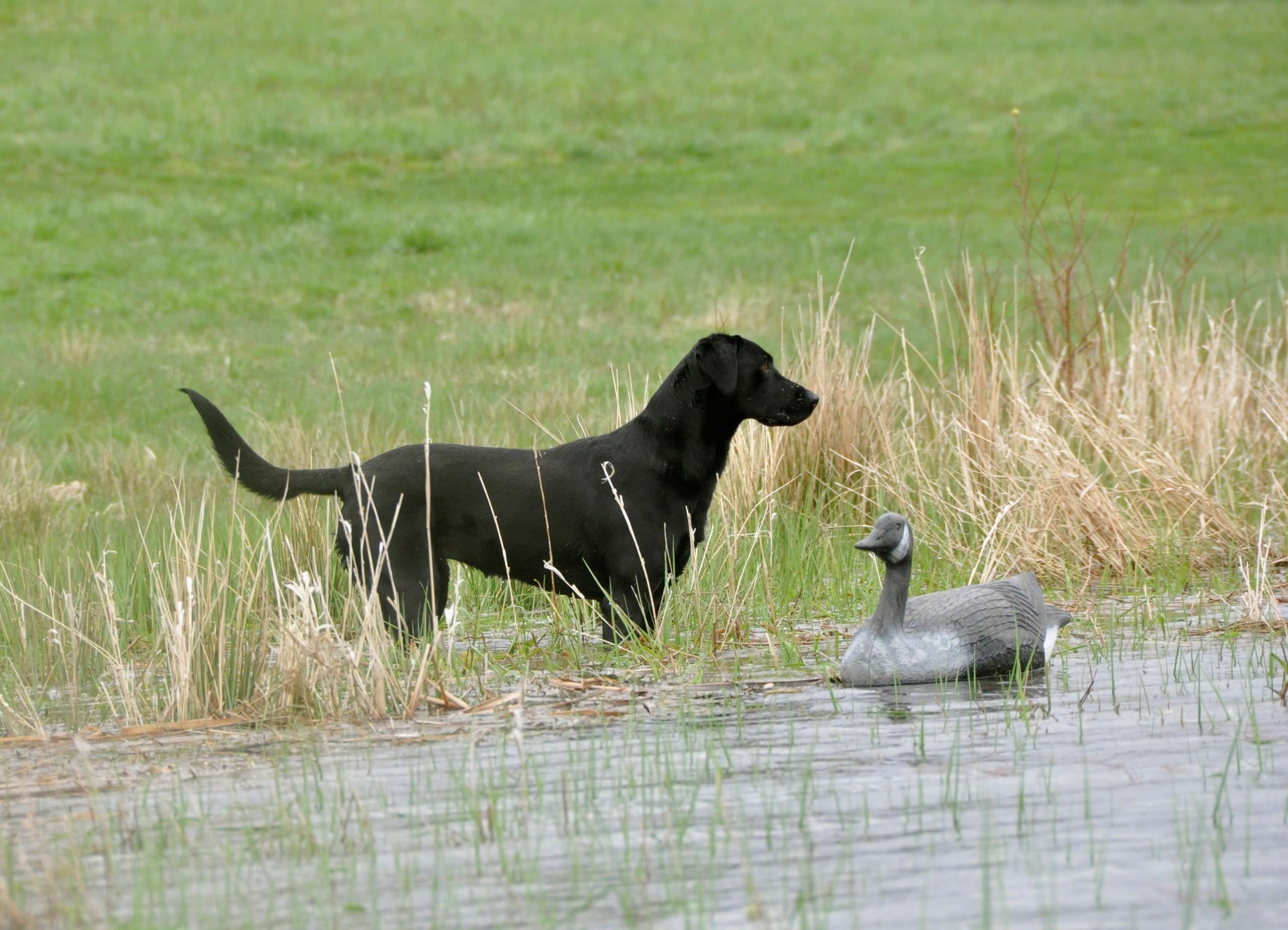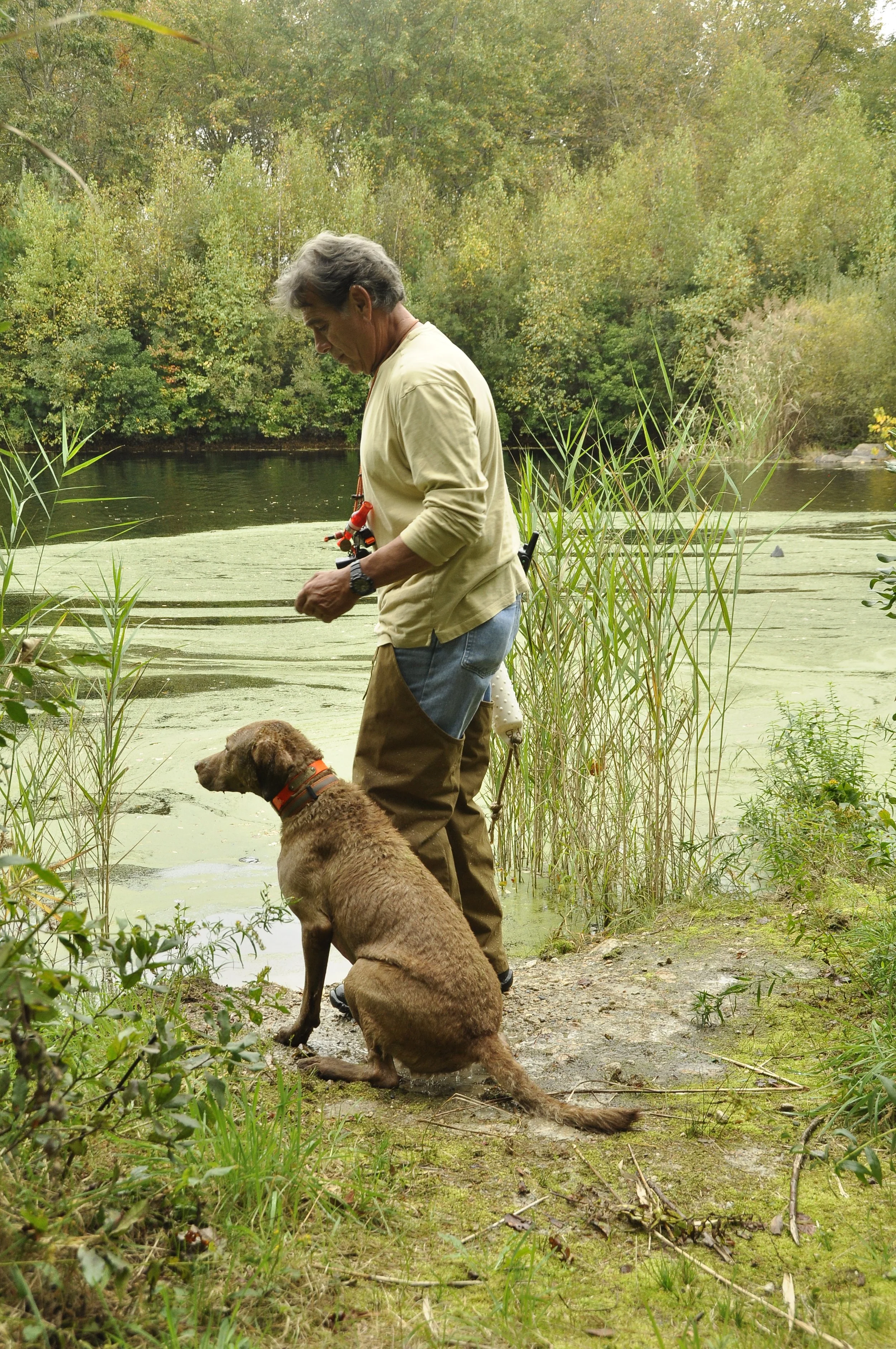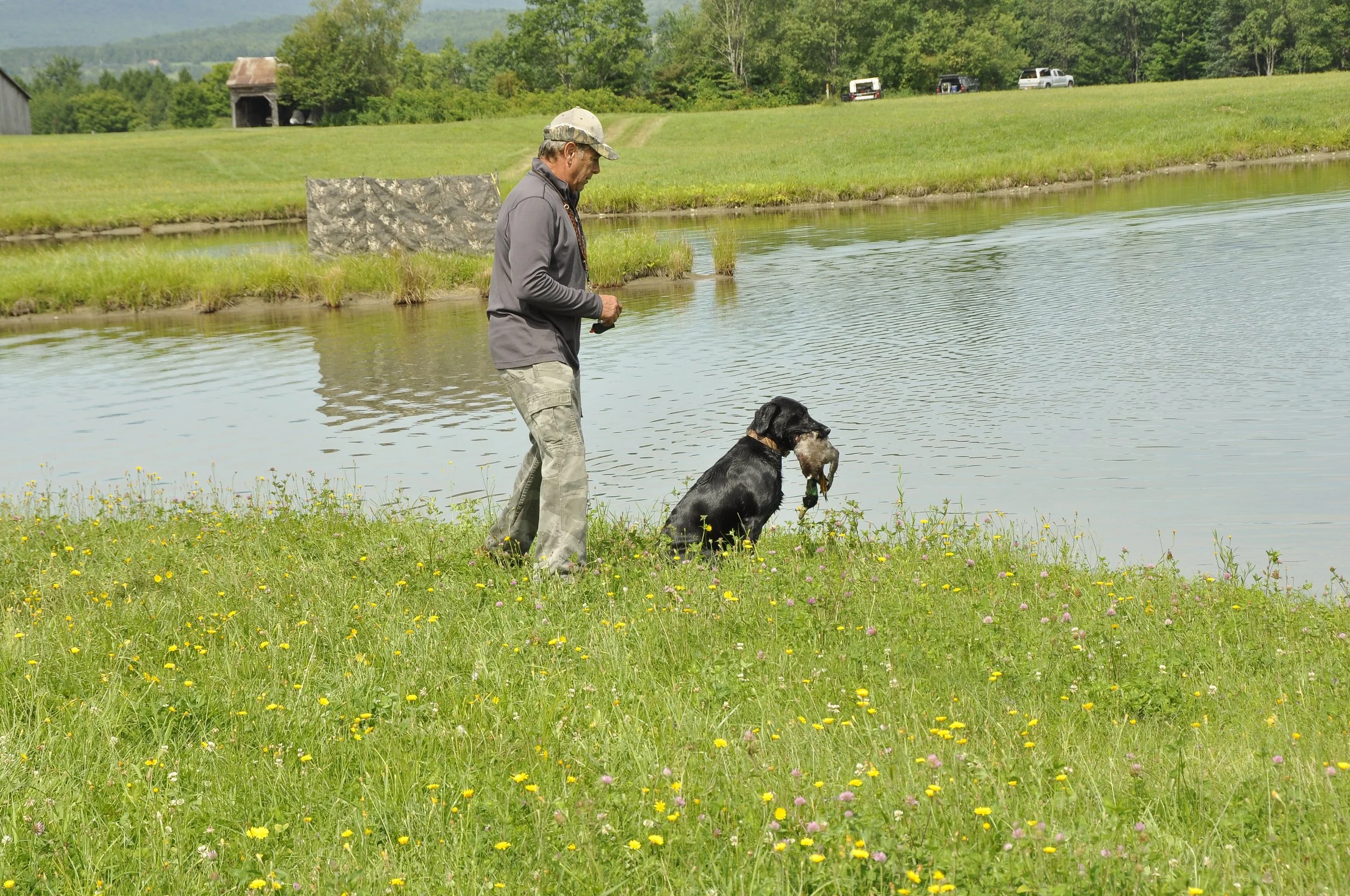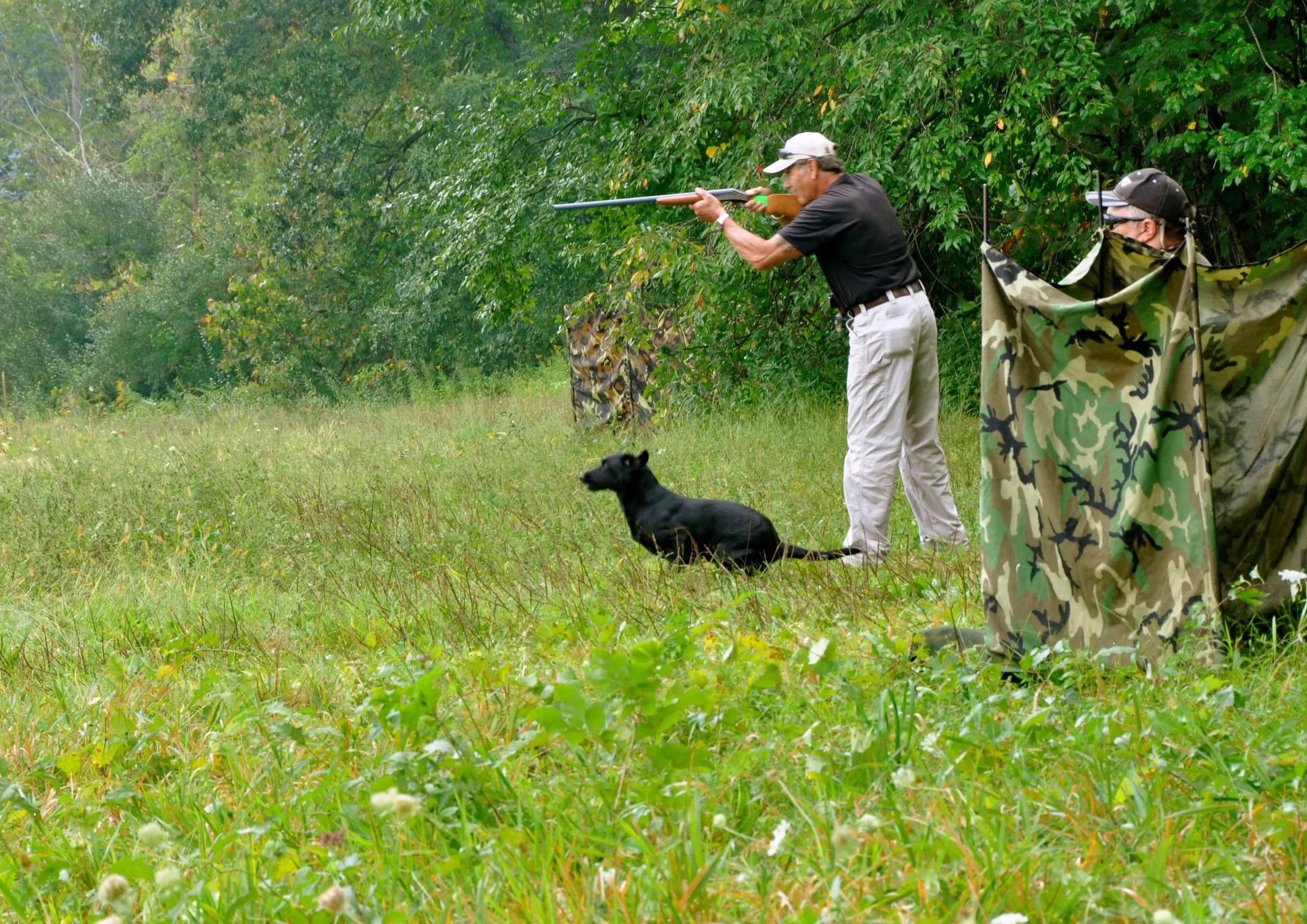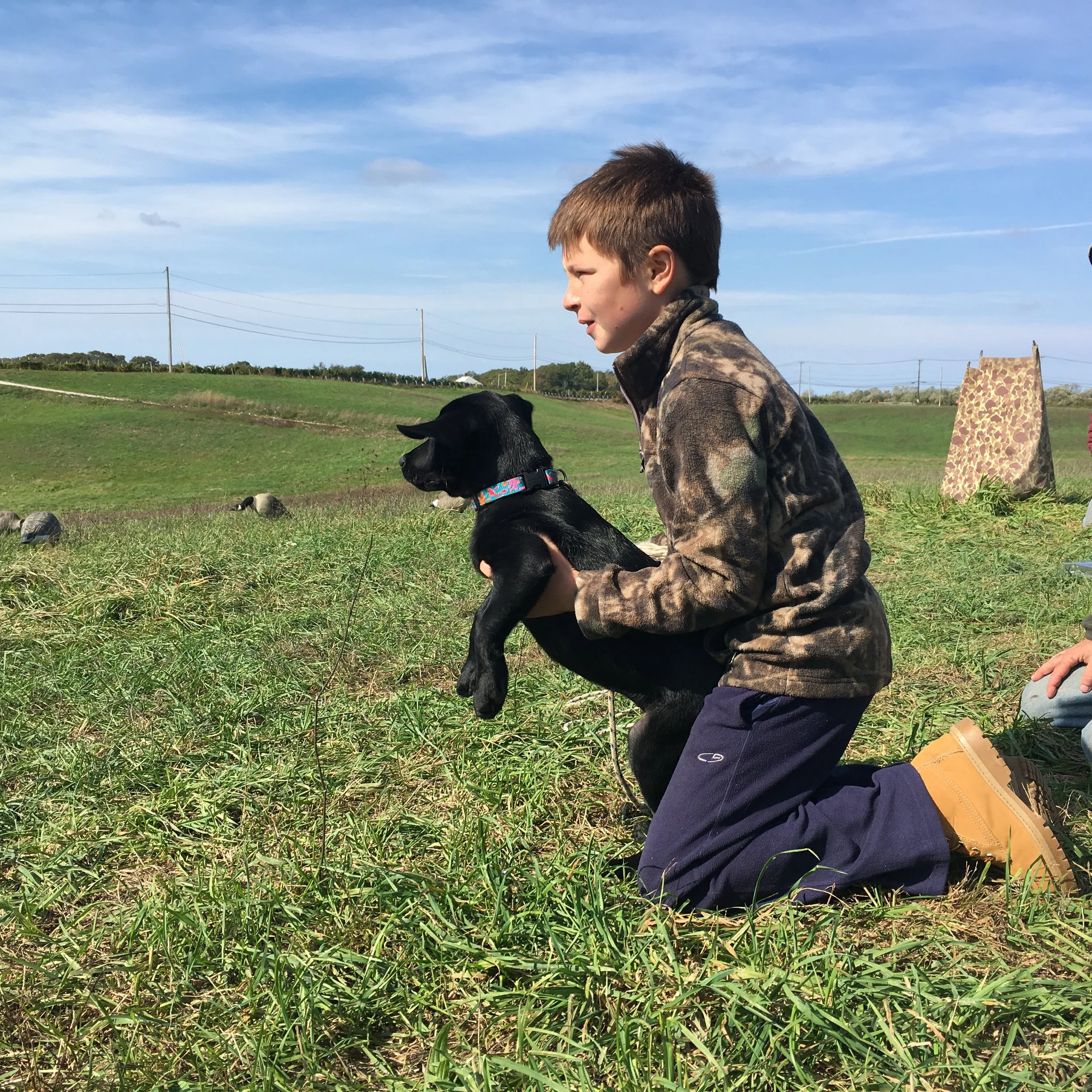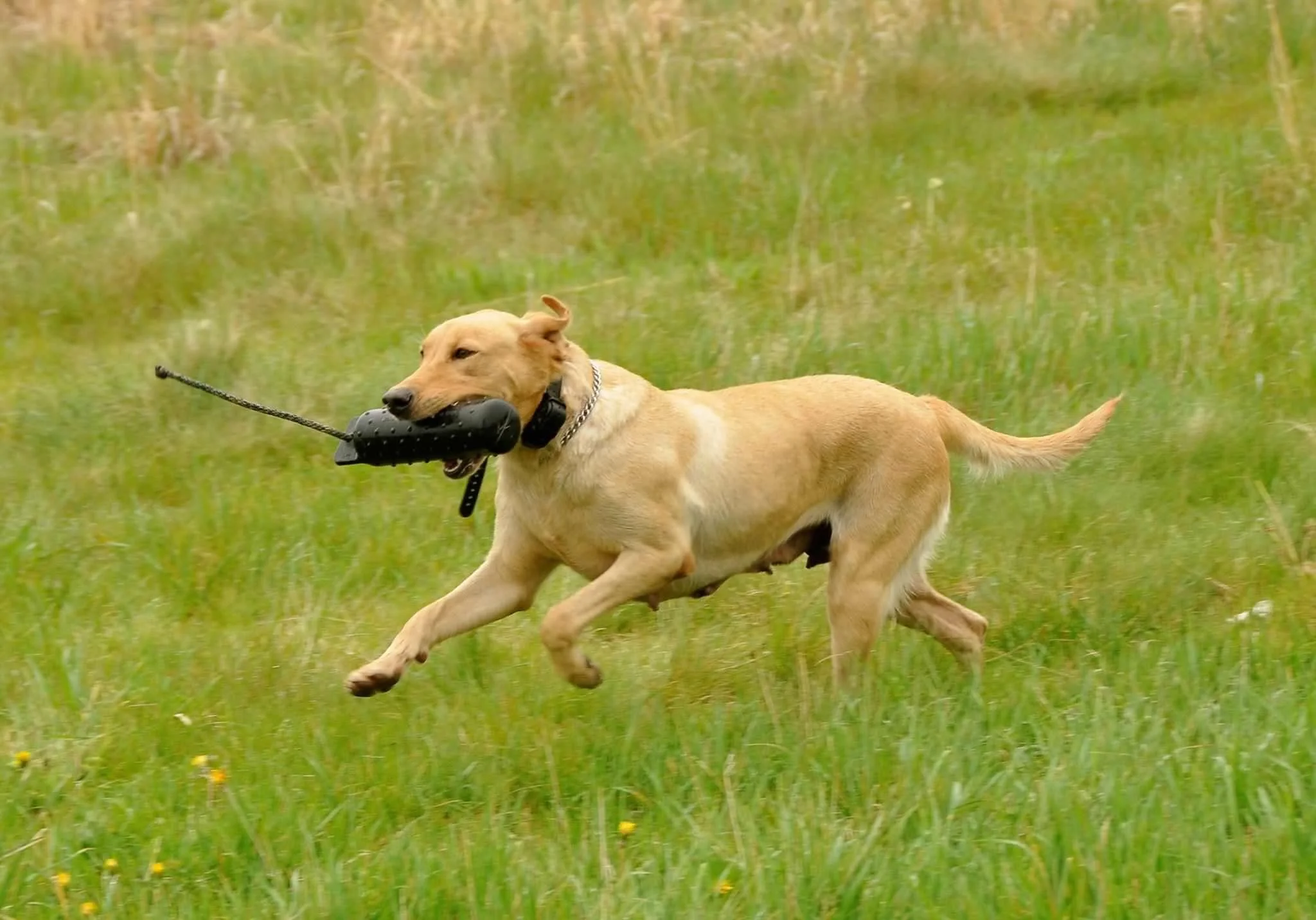
Field Training
Field Training Services
Dartmoor Retrievers offers 3 different training and handling services for those interested in training their dog for fieldwork.
1) Boarding and Training
Due to our training schedule from March to October, we offer our clients the opportunity to leave their dogs with us for the season.
Boarding and Training is the most cost effective option as there is a reduced rate for stays over three months. We treat client dogs as our own.
Benefits of Boarding and Training: provides dogs with the invaluable opportunity to socialize with the pack in the kennel, and allows us to bond with the dogs in a way that promotes their training.
The Kennel: client’s dogs are treated like our own dogs; the kennels are part of the house and are monitored day and night; dogs are turned out in a clean and safe area at least six times daily; the kennel is heated in the winter and Kuranda beds are used for your dogs' comfort; dogs are fed a high quality 30/20 Purina Pro Plan dog food for optimum nutrition of your canine athlete.
Owners are welcome to join any training session, either to participate or to watch their dogs work. This way they receive invaluable training in handling their dogs themselves!
2) Drop-in Training
Dog owners are welcome to train with Paul on a drop-in basis; joining a training session with your dog one to several times a week.
Just be prepared! Retriever training is a group activity and Paul has no problem putting you straight to work.
Paul’s mission is to educate you about the sport and to train you as well as your dog.
In order to reach your goals, we encourage training your dog on a consistent basis.
Important Note: Some dogs need the structure of the kennel in order to progress to a higher level of competence. This is something that Paul will discuss with you as your dog advances in training.
3) Competition Handling
Paul is available to handle your dog in competition; the quickest and easiest way for your dog to achieve AKC titles. Many clients find that this service helps eliminate the stress of handling their dogs in competitions.
If you wish to be fully involved in the challenge of competing your dog, Paul will coach you through the process. Most Dartmoor Retriever training sessions run in a similar manner to an AKC Hunt test; designed to help you become comfortable with your role by the time you finally bring your dog to line!
Summary: Field training is a time-intensive process. Paul trains five days a week so that dogs maintain a high level of physical fitness and develop good habits as difficulty increases. If your dog is not staying at Dartmoor Retrievers, you will need to invest time at-home, training your dog every day, and scheduling several private sessions in order to stay on track.
Field Training at Dartmoor Retrievers
A Foundation of Obedience and Basic Field Training
All puppies begin their training with gentle obedience training at about ten weeks. Using little or no pressure, Paul works on teaching puppies not to bite, housebreaking them, and socializing them. With time, they are taught to sit, stay, and heel.
Once a puppy is deemed ready, the next steps include:
short and simple retrieves
introducing birds
working on recall
Training at this point is never more than every other day, and two or three retrieves at the most. Even if you are not planning on competing or hunting with your dog, these are invaluable tools for you and your dog to have. If they retrieve well, you have a quick and easy way to provide exercise for your dog, and basic obedience, including recall, is essential to ensure your dog's safety in many situations. Decoy drills and teaching the dogs the command "leave it", gives you increased control over what your dog will approach or pick up, both in and outside the home.
Advanced Field Training
At this point,
It does not matter whether you are interested in training your dog for competition, or for hunting. The training is the same. Field retriever concepts and varied terrain are now introduced. Dartmoor Retrievers has access to many different training grounds so that dogs are exposed to wide-ranging landscapes and realistic hunting scenarios. Dogs are trained with both bumpers and birds, using ducks, pheasants, geese, and pigeons so that your dog is exposed to many different types of birds.
Once your dog has finished teething (usually around six months) and is ready to begin multiple marks, field training commences with:
force hold
force fetch
Note: Unlike many trainers, Paul does not use discomfort for this stage, finding that dogs respond quickly and effectively to his approach of attrition and praise.
After the basics are solidly ingrained, dogs continue with the more advanced aspects of retriever training, including:
multiple marks
tight marks
three handed casting
handling on blind retrieves on land and in water
land and water lining drills
breaking tests using live flyers



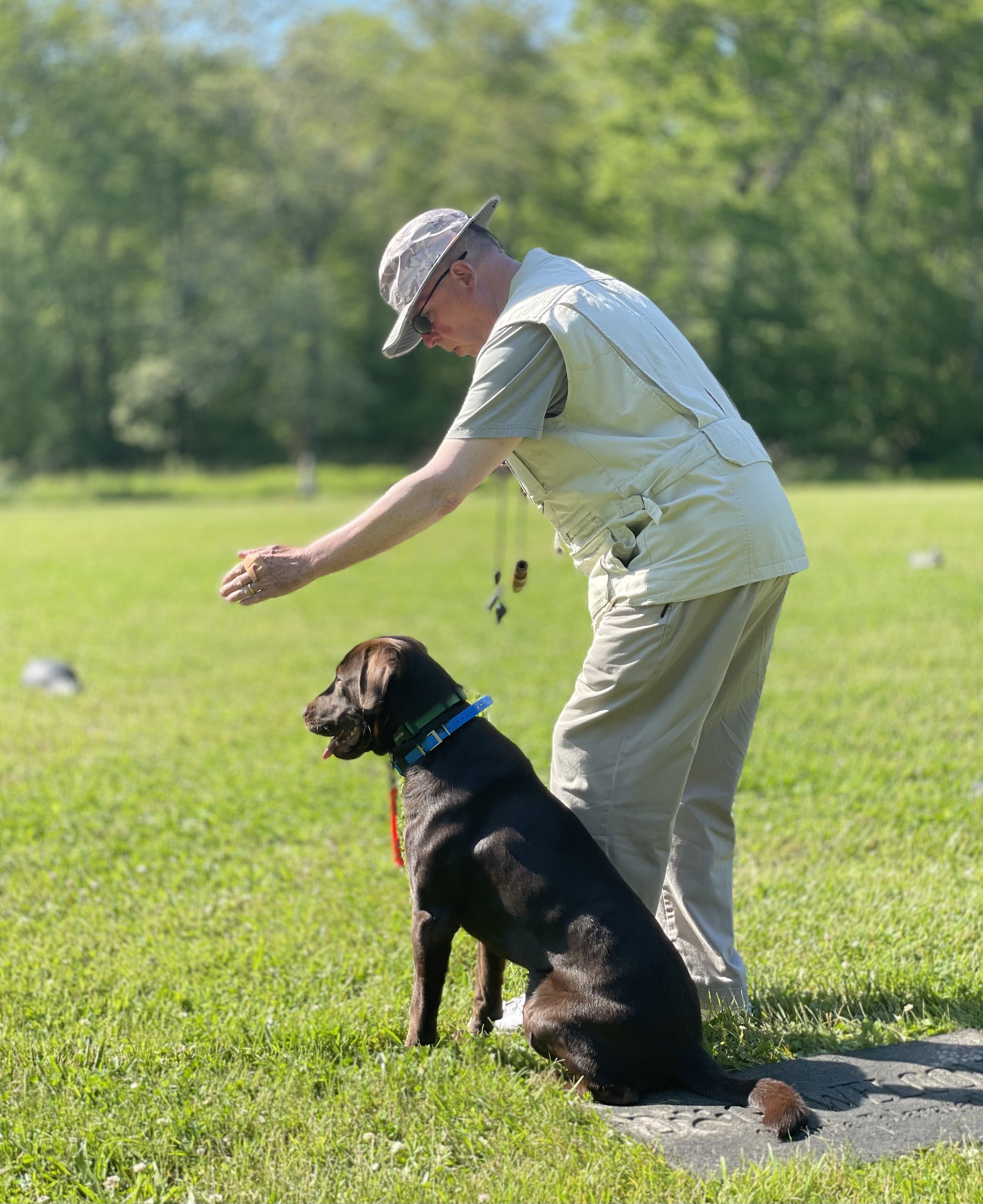
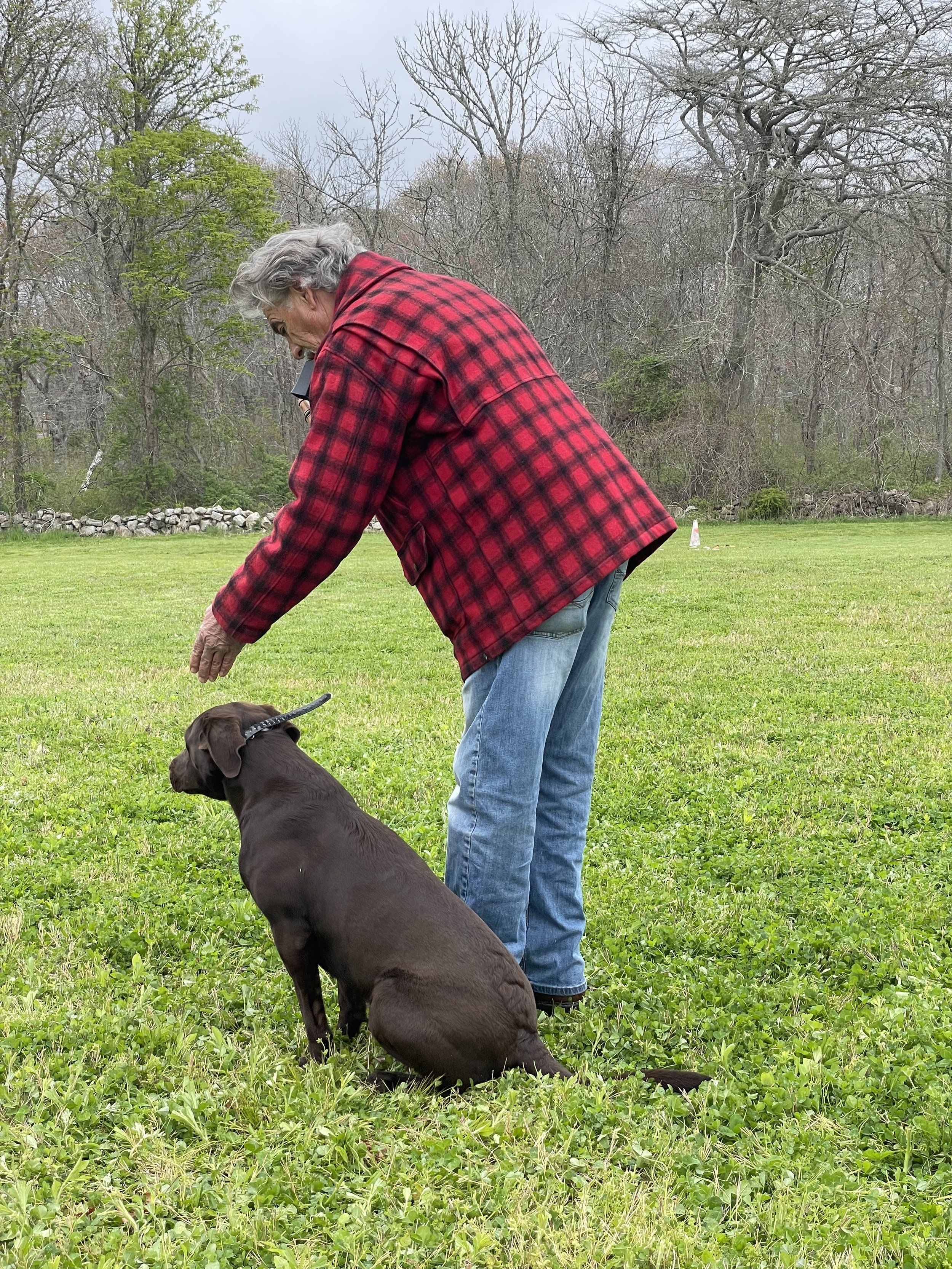
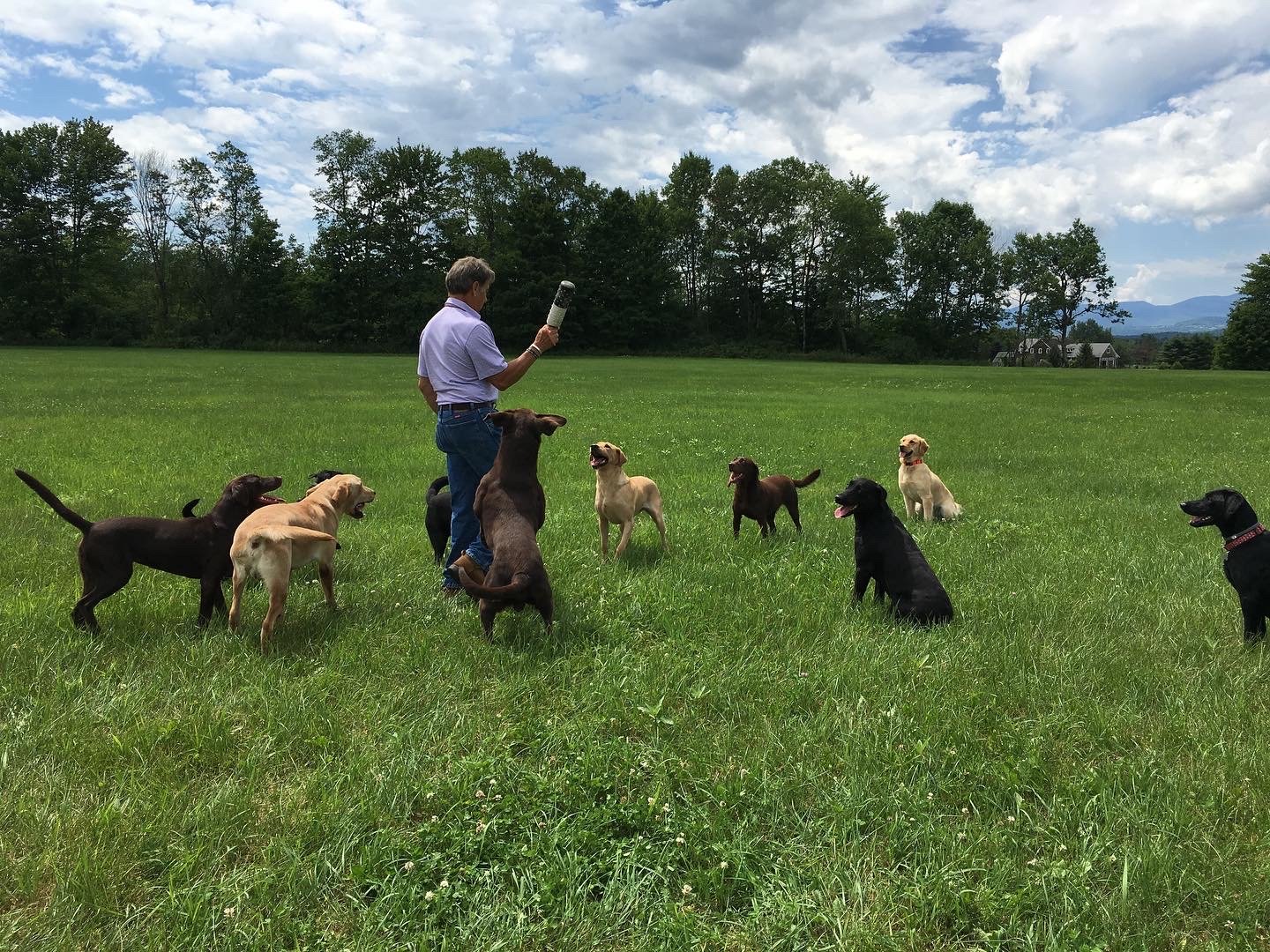
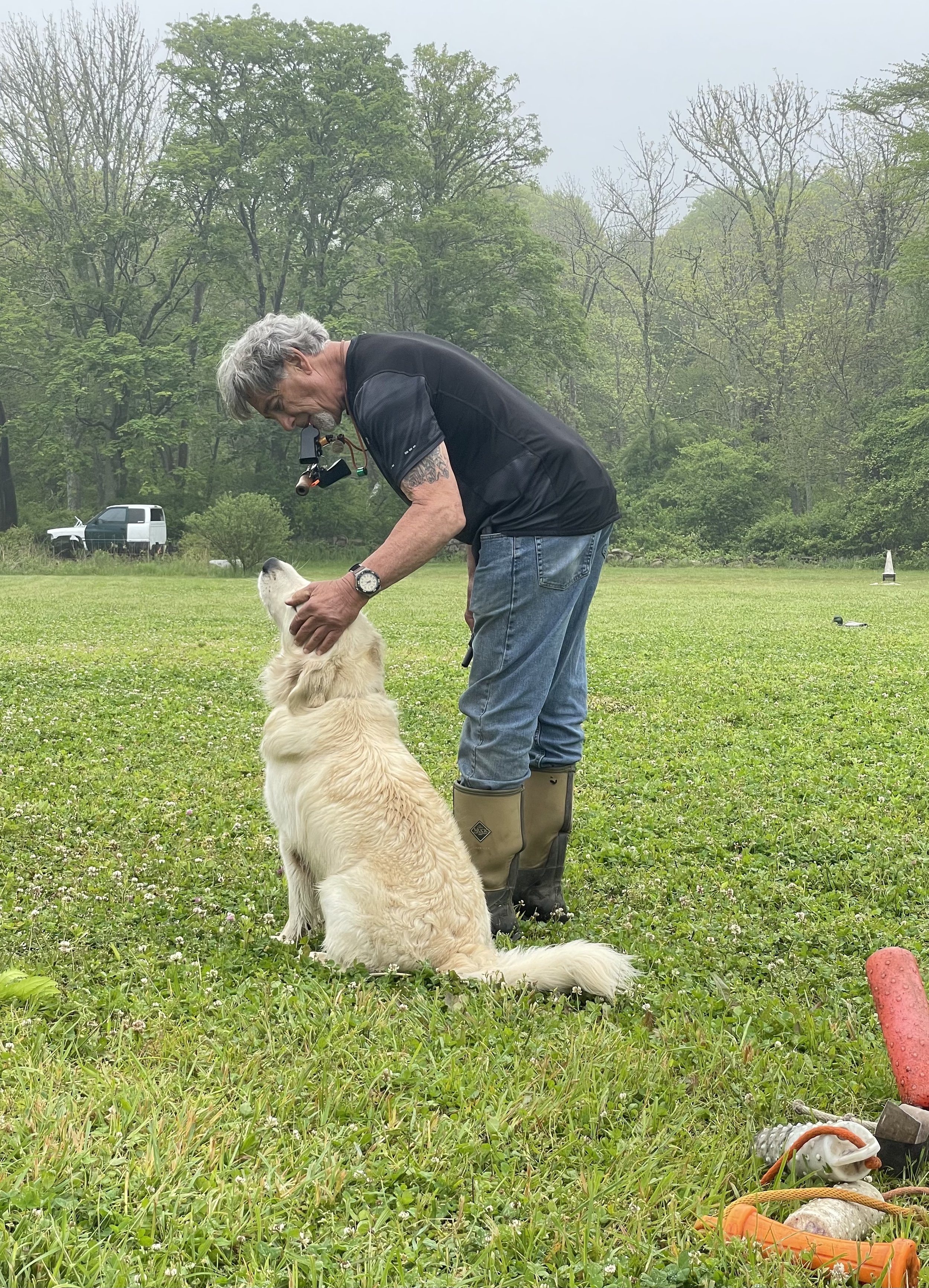
Schedule
Paul trains five days a week so that dogs are able to maintain a high level of physical fitness and acquire good habits as difficult lessons are introduced. At this point, your dog should have a clear understanding of the various hunting scenarios that they may encounter, having already mastered skills obedience, steadiness on line, and competency in handling basic blind retrieves.
Some dogs have the talent and drive to continue their education to the highest level, and if this is appropriate for you and your dog, Paul is ready to help you achieve your goals. Paul has finished dozens of Master Hunters, for both himself and his clients. He has qualified dogs at the Master National, and achieved a high level of success in Field Trials. His training program results in happy, healthy dogs who have a tail wag every time they go to line, and look forward to their work every day.
